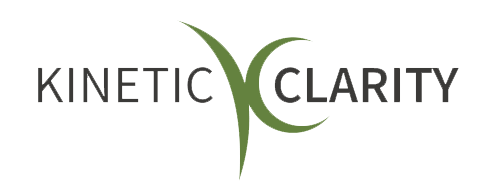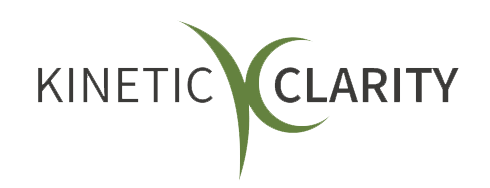Securing Your Company’s Future: The Role of Leadership Coaching in Succession Planning
What if you could make succession planning a smooth process in your organization? Would you do it?

Succession planning is critical for preparing your organization for continued growth. Planning for new leaders involves identifying and developing employees who can seamlessly step into critical roles when needed. Leadership coaching is essential in this process, as it helps recognize high-potential employees, develop their leadership skills, and provide personalized development plans.
Integrating coaching into your succession planning strategy can transform your organization's preparation for the future, ensuring long-term stability and success. Here's how:
How Leadership Coaching Enhances Succession Planning
Leadership coaching is a powerful tool for succession planning, empowering individuals to step into top leadership roles with confidence. By honing strategic thinking, decision-making, and emotional intelligence, leadership coaching ensures high-potential employees are ready to take on the complexities of executive positions. This targeted development strengthens your leadership pipeline, ensuring smooth transitions and continuity within the organization.
1. Identifying High-Potential Employees
As an HR leader, your role in leadership coaching is crucial. You're responsible for identifying employees with high potential for leadership roles and coordinating their coaching sessions. Coaches can assess individuals' strengths, weaknesses, aspirations, and overall potential through one-on-one sessions. With this in-depth information, you can identify those best suited for future leadership positions.
2. Developing Leadership Skills
Once high-potential employees are identified, coaching becomes a journey of personal growth and development. Coaches work with these individuals to build critical competencies such as decision-making, strategic thinking, emotional intelligence, and effective communication. This targeted development ensures potential successors are well-prepared to take on higher responsibilities, inspiring them to reach their full potential.
3. Providing Personalized Development Plans
Coaching allows for creating personalized development plans tailored to the needs and goals of each potential successor. These plans outline specific actions, learning opportunities, and milestones that align with both the individual's career aspirations and the organization's future needs. Tailored development helps successors prepare now so they can step into leadership roles when needed.
4. Facilitating Smooth Transitions
Succession planning often involves smoothly transitioning roles and responsibilities to avoid disruption. Coaches can support both the outgoing and incoming leaders during this transition period. For the successors, coaching provides guidance on navigating their new roles, managing teams, and aligning with the organizational vision. Outgoing leaders can use coaching to pass on their knowledge and experience more effectively.
5. Enhancing Retention and Engagement
Employees with a defined career path who receive support through leadership coaching remain engaged and dedicated to the organization. This engagement is crucial for retention, particularly of high-potential employees who are integral to the succession plan. Coaching demonstrates the organization's investment in their future, which boosts morale and loyalty.
6. Building a Leadership Pipeline
Effective succession planning requires a robust leadership pipeline. Coaching ensures a continuous process of developing leaders at various organizational levels. This ongoing development creates a pool of well-prepared people ready to step into a leadership role, providing the organization's long-term stability and success.
7. Promoting a Culture of Continuous Improvement
Coaching instills a culture of continuous improvement and learning within the organization, shaping a brighter future. Potential leaders who engage in coaching develop a mindset focused on growth, adaptability, and innovation. This culture benefits individual employees and drives the organization forward, fostering a dynamic and resilient workforce.
4 Types of Coaching for Succession Planning
There are four types of coaching that support succession planning well. Each of them have their own purpose and time to implement.
1. Executive Coaching
Executive coaching is tailored for individuals already in or moving into executive roles. It focuses on strategic leadership, decision-making, and navigating complex organizational dynamics. For succession planning, executive coaching prepares high-potential employees to transition smoothly into top leadership positions.
2. Leadership Coaching
Leadership coaching targets mid-level managers and senior leaders on the path to executive roles. It covers a broad range of leadership skills, including team management, conflict resolution, and performance management. This type of coaching ensures that the leadership pipeline is solid and ready to support the organization's future needs.
3. Developmental Coaching
Developmental coaching focuses on employees' overall growth and development at various stages of their careers. It aims to enhance competencies, build new skills, and prepare individuals for future leadership roles. This type of coaching is crucial for identifying and nurturing emerging leaders.
4. Transition Coaching
Transition coaching is designed to support employees during change, such as promotions, role changes, or restructuring. It helps individuals adapt to new responsibilities and environments, ensuring smooth and effective transitions. For succession planning, transition coaching is essential for newly appointed leaders to integrate successfully into their roles.
How to Implement Coaching in Succession Planning
Implementing coaching in succession planning is a strategic move that can significantly enhance the development and readiness of future leaders within your organization. Here's how to get started with integrating coaching into your succession planning strategy to create a robust and effective succession planning process.
1. Establish Clear Goals
Define the objectives of your coaching program in the context of succession planning. Determine which competencies and skills future leaders in your organization need and align coaching goals with these needs.
2. Select Qualified Coaches
Choose experienced and certified coaches with a track record of success in leadership development. Make sure they understand your organization's culture, values, and strategic goals.
3. Integrate Coaching with Development Programs
You can incorporate coaching into your broader leadership development programs, such as workshops, seminars, and online courses. This integration ensures that coaching complements other learning and development initiatives, creating a comprehensive approach to succession planning.
4. Monitor Progress and Adjust Plans
Assess the progress of coaching engagements and the development of potential successors regularly. Use feedback and performance metrics to adjust coaching plans as needed, ensuring individuals stay on track to meet their development goals.
5. Foster a Coaching Culture
Promote a culture where coaching is valued and encouraged at all levels of the organization. This culture supports succession planning and enhances overall organizational performance and employee satisfaction. It fosters a continuous learning environment and encourages employees to take ownership of their professional development.
Wrapping it Up
Incorporating leadership coaching into your succession planning strategy offers a wealth of benefits. It develops capable, prepared leaders who can guide your organization into the future. By investing in coaching, you enhance the skills and readiness of your potential successors while fostering a culture of continuous improvement, engagement, and retention.
As a corporate HR leader, embracing the power of coaching can transform your approach to succession planning, setting your organization up for long-term success and stability. Start today and see how leadership coaching can impact your organization's future.
Barb
If succession planning has been on your business agenda, now’s the time to act. Lock in your development dollars for succession planning and a more secure future. Contact Kinetic Clarity today.












